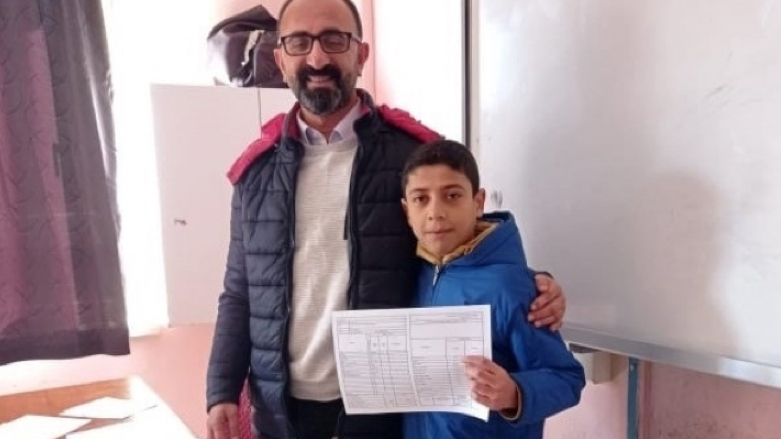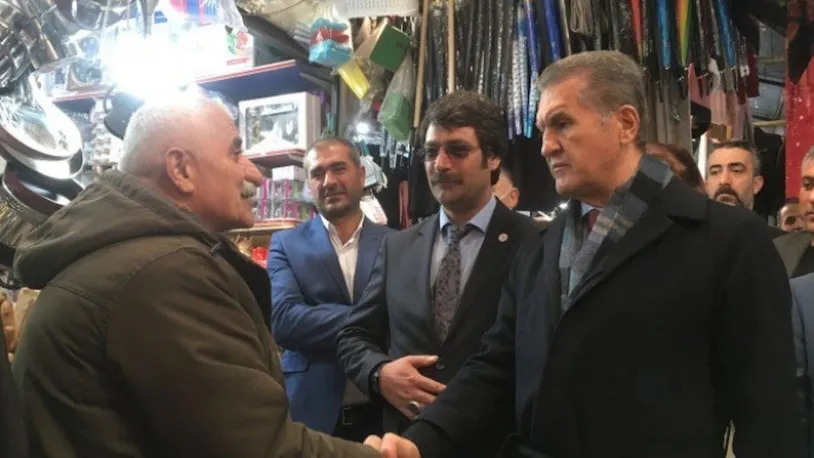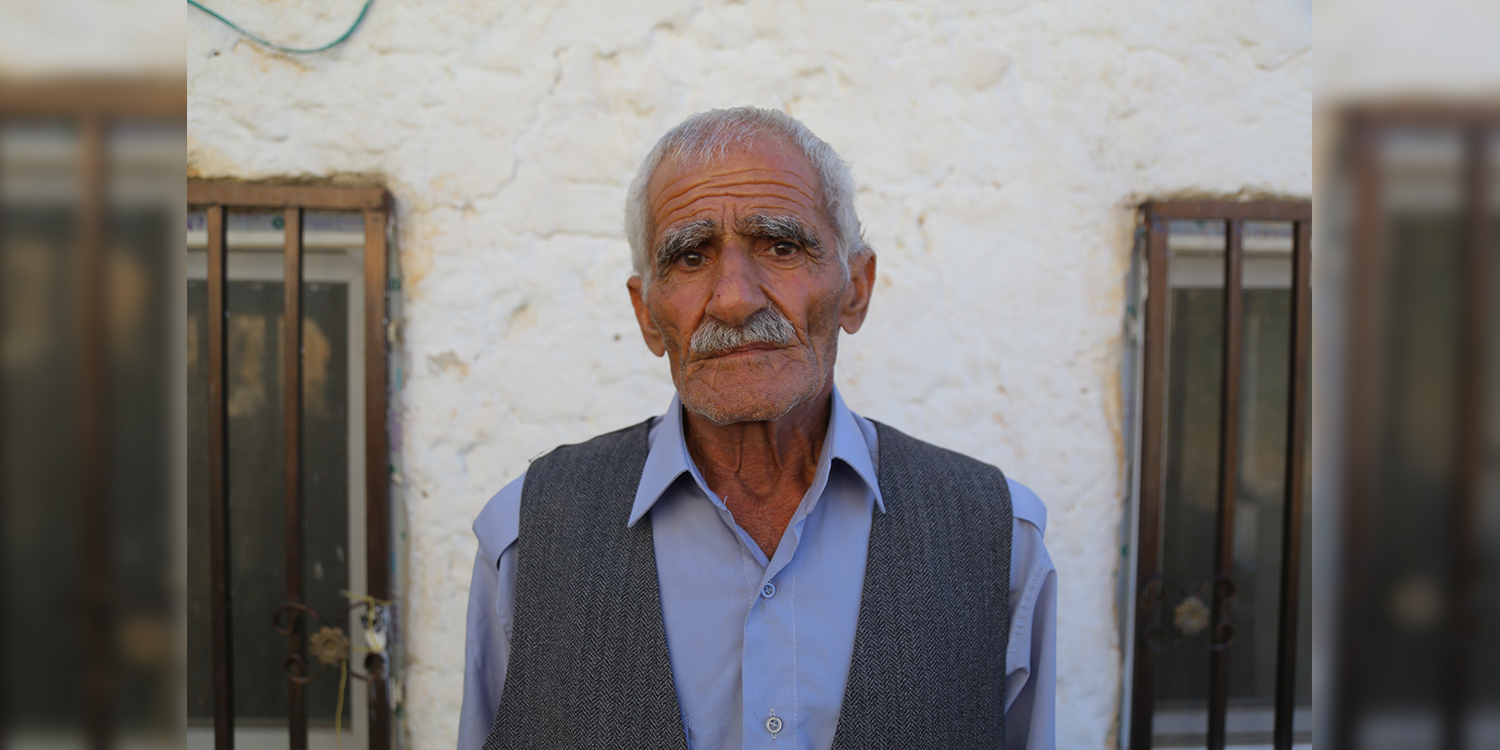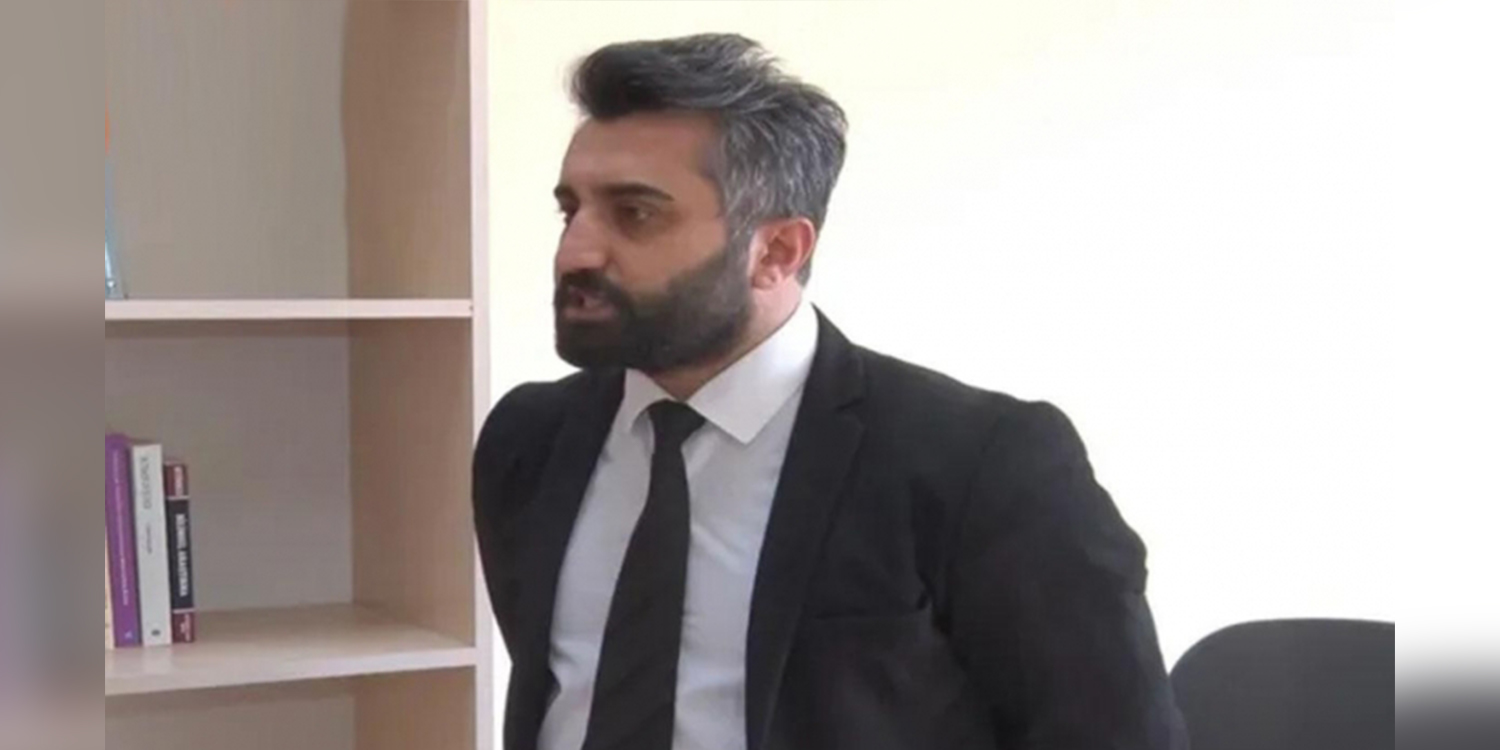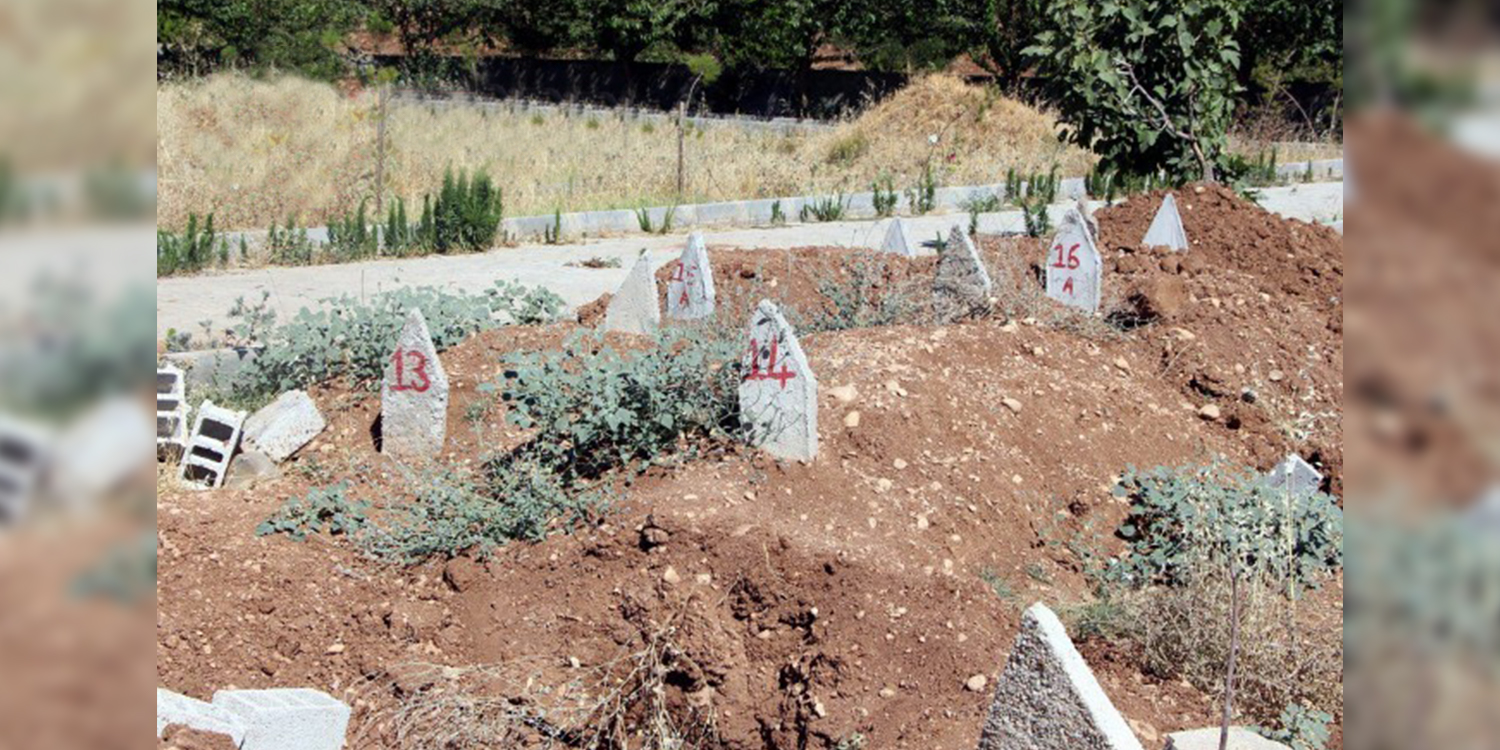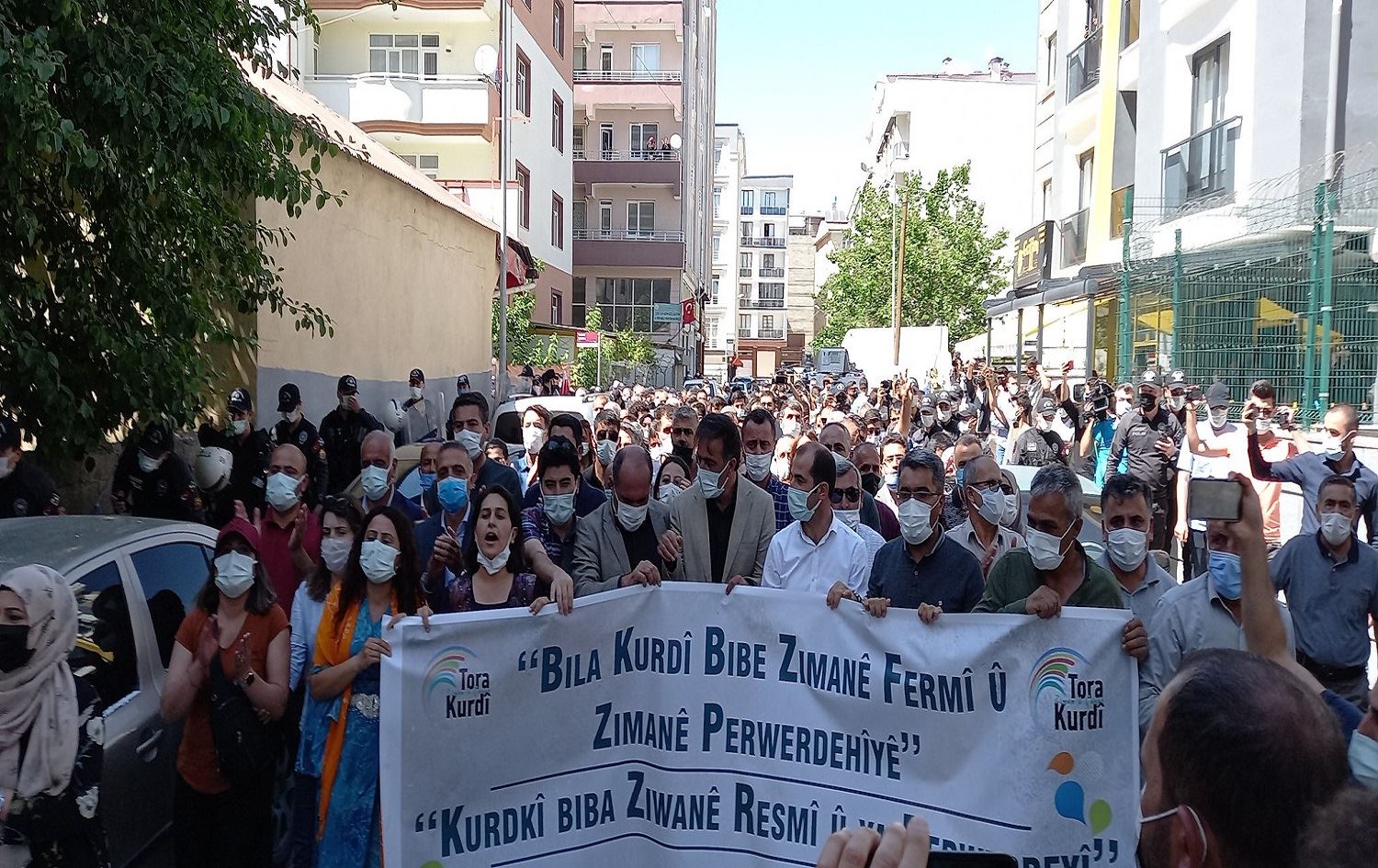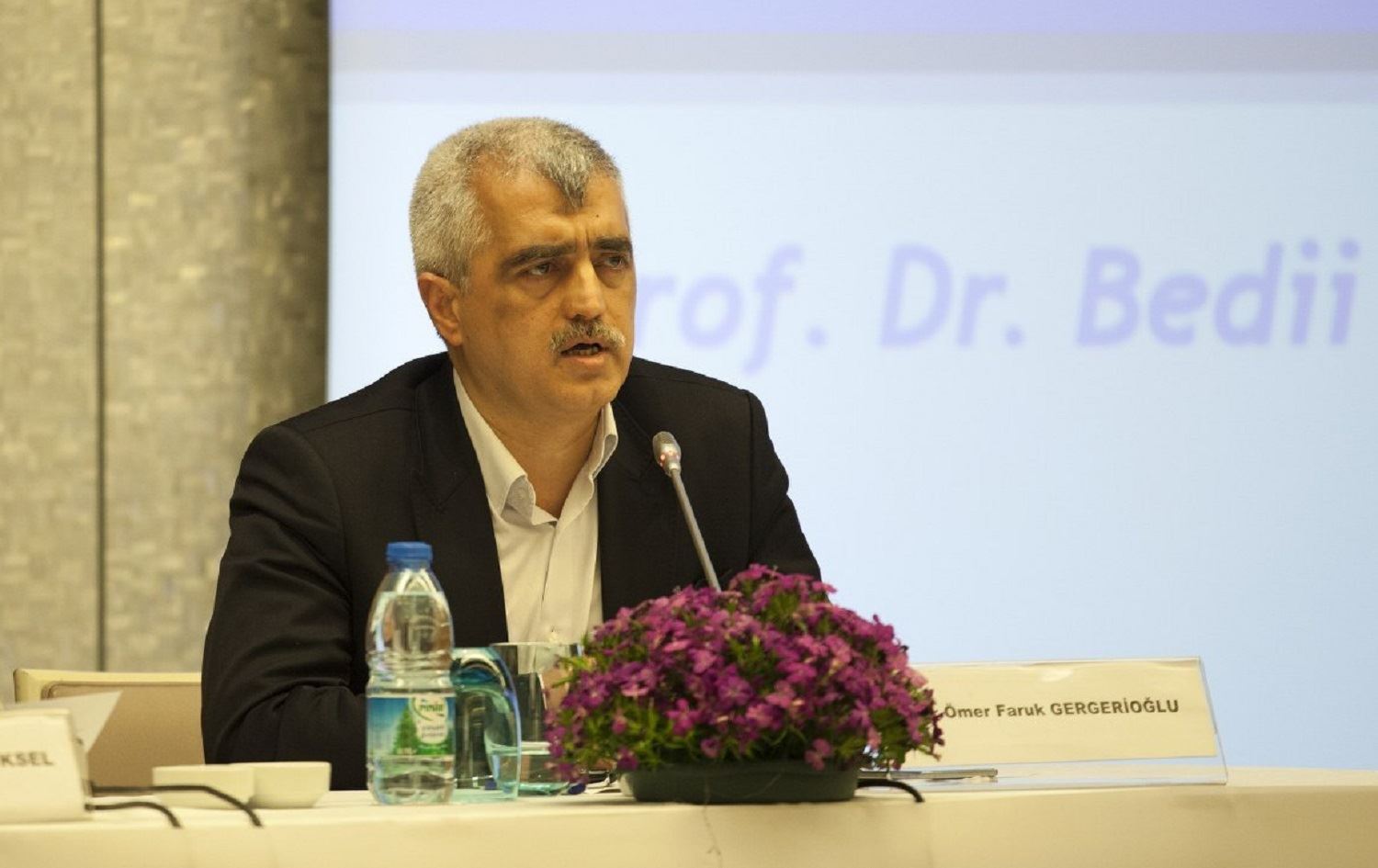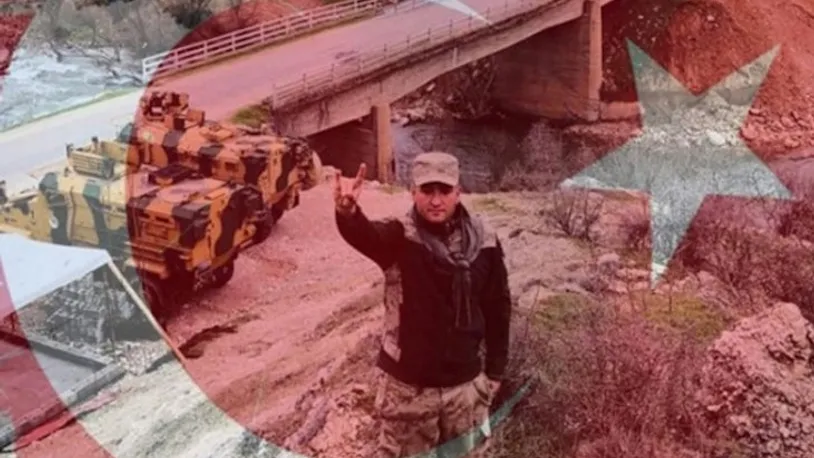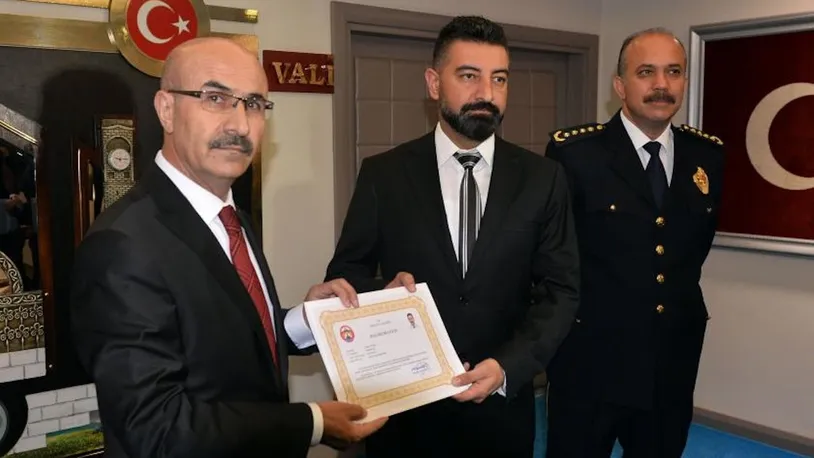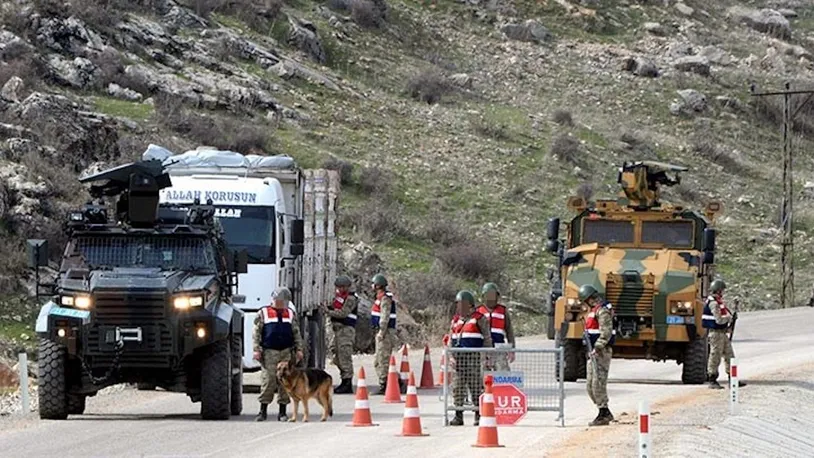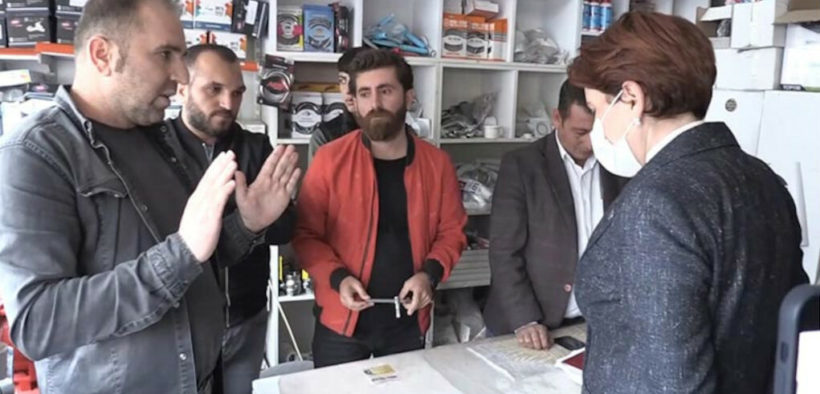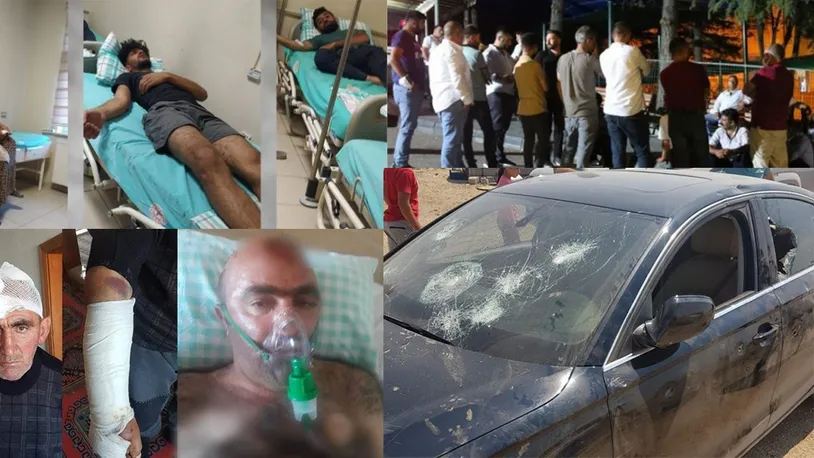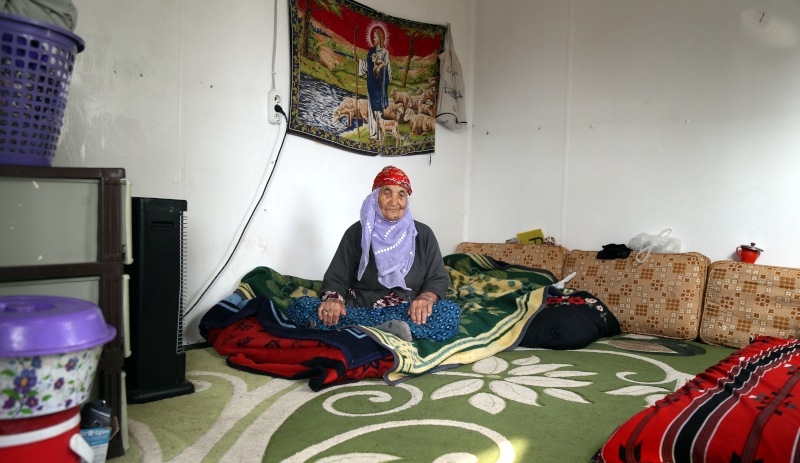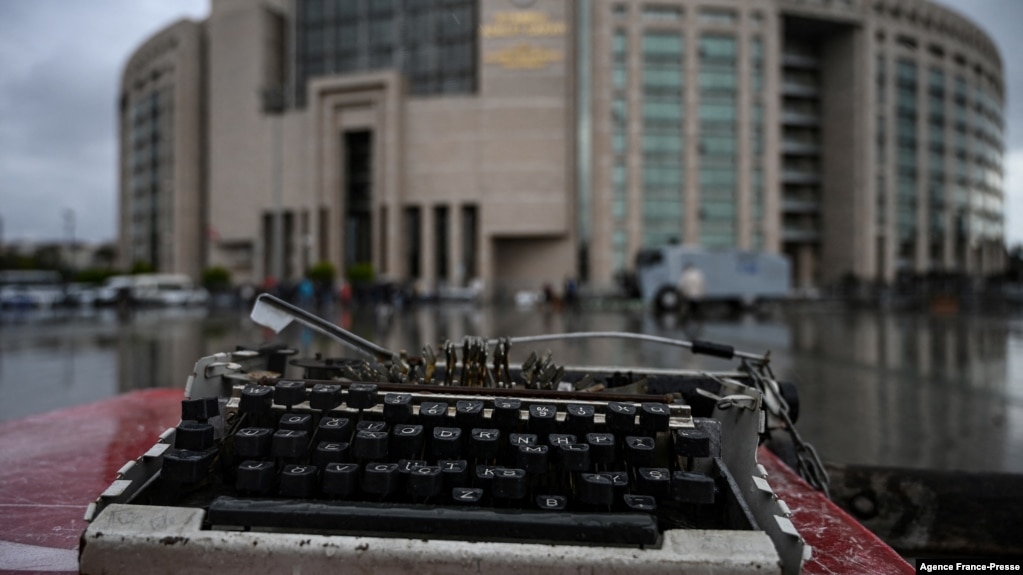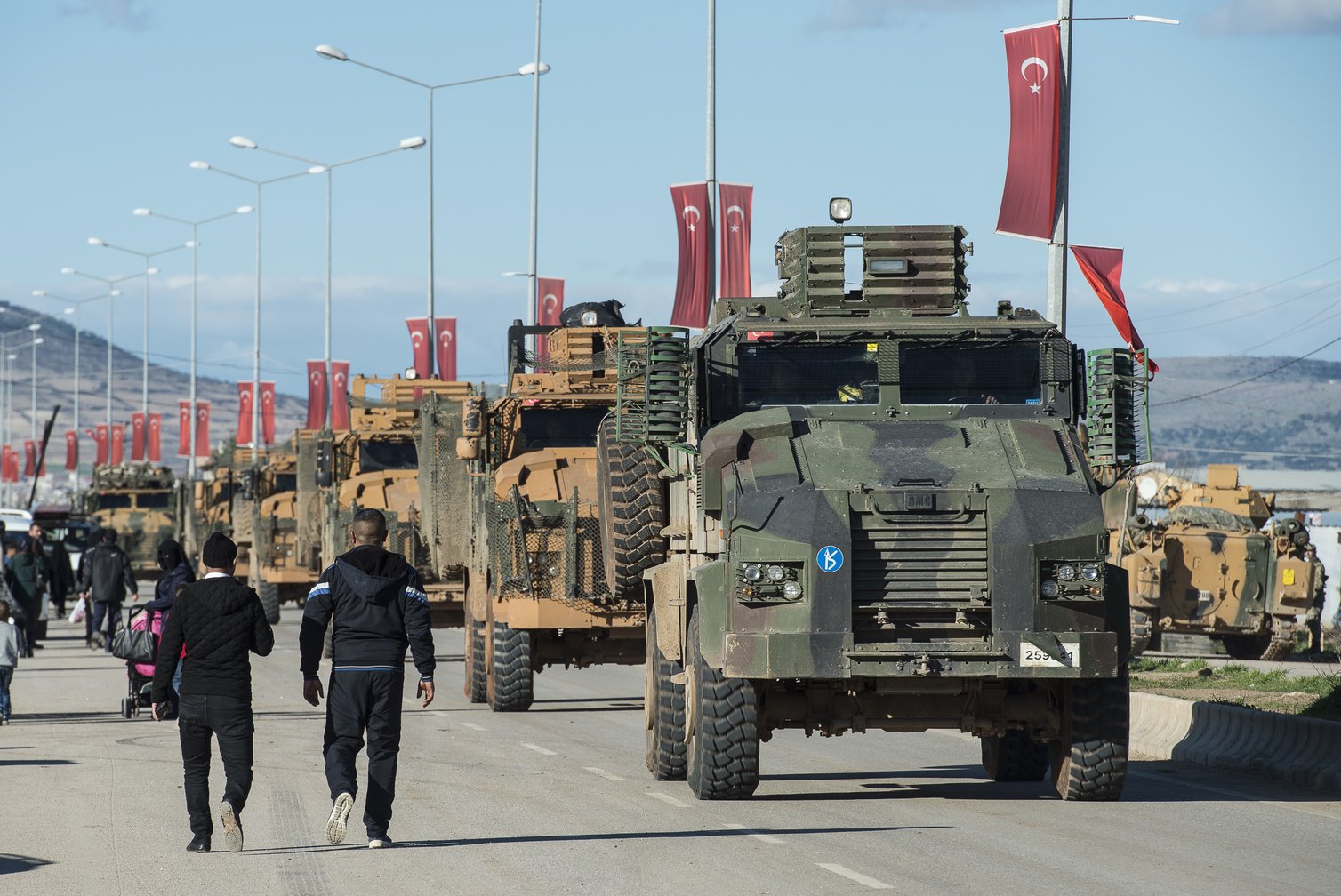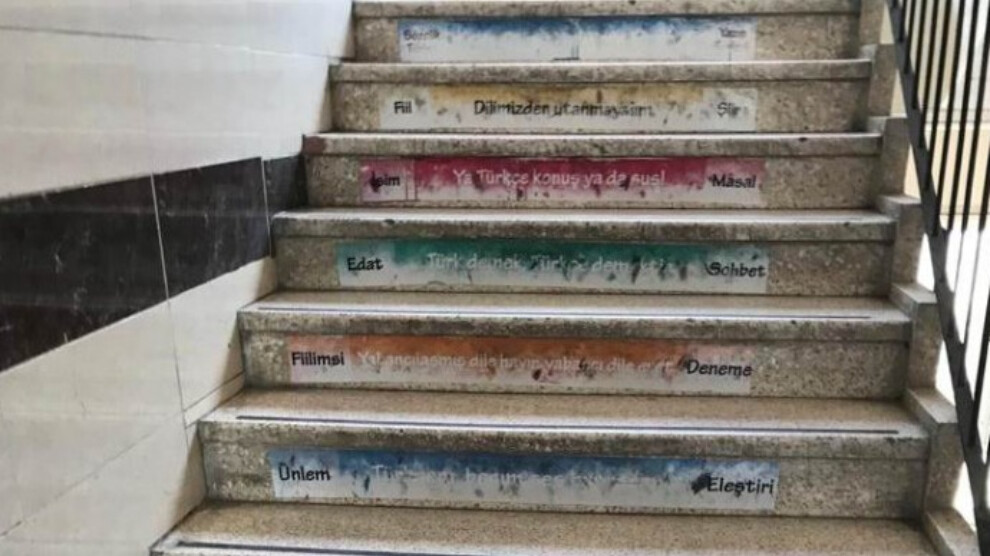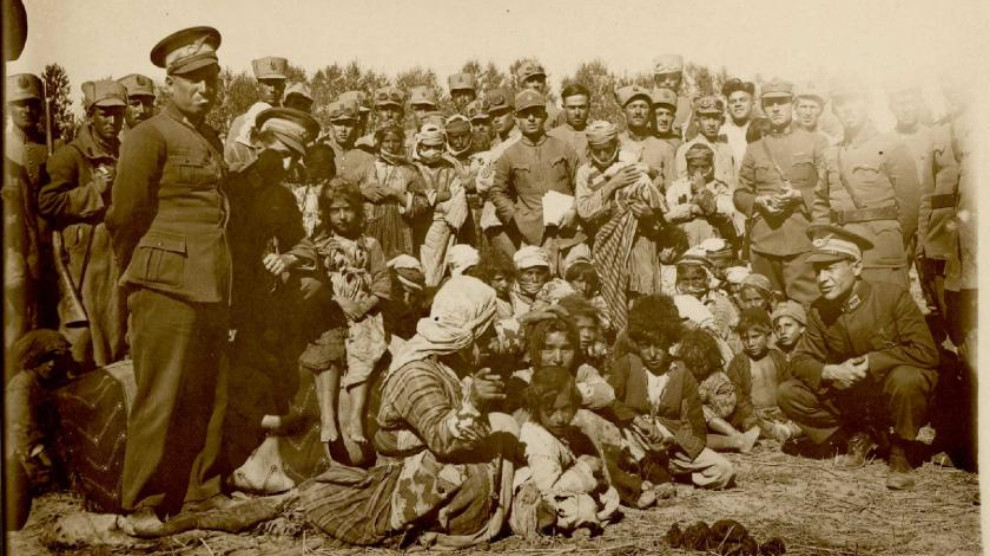Sixten journalists who were detained in the predominantly Kurdish province of Diyarbakır during last week’s police raids were remanded in custody early today (June 16).
The police search in the offices of two production companies as part of an investigation into Kurdish media outlets has been completed 32 days after 16 journalists were detained during raids. The [Turkish] police reportedly seized computers, hard drives, cameras, microphones and other equipment.
Hüdai Morsümbül, the 23-year-old teacher, was exiled from his school.
A Kurdish man was detained after he called Turkey’s southeast “Kurdistan” during a conversation with Mustafa Sarıgül, the leader of the Party for Change in Turkey.
Başak Demirtaş and her doctor sentenced over ‘falsified’ medical report on her miscarriage
Kutum’s lawyer Mehmet Emin Aktar tweeted that his client was released after appeal at the 2nd Elazig High Criminal Court, where he was charged.
A Kurdish academic named Hifzullah Kutum was suspended from Fırat University in Turkey’s eastern Elazığ province for a post on social media in which he said “Long live Kurdistan” accompanied by a picture of Iraqi Kurdish leader Masoud Barzani, Duvar English reported on Friday.
ERBIL, Kurdistan Region – A Kurdish academic has recieved a warning from his university in Turkey after making an online post celebrating a revolution of Kurds against the Iraqi government in the sixties.
Soldiers beat up elderly people in a village in the Ömeryan district of Mardin last week. Abdurrahman Din (73) said he was kicked even after falling to the ground.
An academic from Fırat University was first suspended and then arrested for writing the word ‘Kurdistan’ on Twitter
Kurdish fighters who died during the clashes with the Turkish Army are buried in the cemetery of the unknown without their families being informed
Kurdish political parties and language promotion institutions have launched a campaign, calling on the Turkish government to recognize Kurdish as an official language in the country.
A top Turkish court on Friday upheld a two-and-a-half year jail sentence for a parliamentarian from the pro-Kurdish Peoples’ Democratic Party (HDP) accused of making propaganda for the Kurdistan Workers’ Party (PKK). The outspoken lawmaker recently revealed the controversial use of strip searches in Turkish prisons.
The British parliament on Tuesday debated the UK’s listing of the Kurdistan Workers’ Party (PKK) as a terrorist organization and called for action on Ankara’s policies towards its Kurdish population and opposition voices.
Turkish Justice Ministry has dismissed a parliamentary question on the release of a rapist soldier for being “offensive.” Uca in her question asked Justice Minister Abdülhamit Gül to reveal the reason for why former specialized sergeant Musa Orhan was released despite raping İpek Er. The ministry said that the question can be accepted if the terms found “crude and offensive” are removed.
The number of inmates with university degrees in Turkey increased more than twofold between 2016 and 2020, reaching 20,333, EuroNews Turkish reported, citing data released by Turkish Statistical Institute (TurkStat).
The number of inmates with university degrees in Turkey increased more than twofold between 2016 and 2020, reaching 20,333, according to the data released by Turkish Statistical Institute (TurkStat), the Stockholm Center for Freedom reported, citing EuroNews Turkish service.
A Turkish police officer who previously received an award for catching drug dealers in the southern province of Adana was apprehended with 25 kilograms of heroin, Demirören News Agency reported on Oct. 31.
A specialized sergeant was apprehended with 42.1 kilograms of marijuana in the southeastern province of Diyarbakır, Demirören News Agency reported on Nov. 1.
A shop owner has been taken into custody for using the word “Kurdistan” to describe the region he lives in during an exchange with the leader of a nationalist party in the southeastern province of Siirt, according to a police statement, Turkish Minute reported on Friday.
An armoured vehicle belonging to the Turkish Armed Forces ran over five-year-old N.D. in the southeastern Şanlıurfa province on Wednesday, Mezopotamya Agency reported.
ERBIL, Kurdistan Region – Turkish police detained a Kurdish tradesman on Friday after he referred to his city as part of “Kurdistan” during an argument with a nationalist politician. He is accused of making propaganda for the Kurdistan Workers’ Party (PKK).
Turkey was marked by four racist attacks on Kurdish families and workers over just two weeks, prompting outrage on the part of rights defender groups and civil society. The Human Rights Association (İHD) said in an official statement that these attacks were a result of the spread of discriminatory rhetoric in the country, while 15 bar associations described these attacks as “irreversible acts.”
The pressure on Kurds in Turkey to not speak their own language is a reflection of a general intolerance towards the Kurdish population, said Birca Belek Language and Culture Association Co-chair Mirza Roni.
A 96-year-old woman is being forced to travel more than 500 kilometers from her home to receive treatment as part of judicial measures imposed on her by a court on the grounds that she insulted Turkish President Recep Tayyip Erdoğan, the Mezopotamya news agency reported.
Jailed Kurdish politician Selahattin Demirtaş may be released on parole by the court on November 3, Turkish officials said in the action plan they submitted to the Committee of Ministers of the Council of Europe.
In-depth: Prompted by the release of a report by a group of British MPs, the debate comes as the crackdown on activists and politicians intensifies in the run-up to Turkey’s next elections.
Gökkan was sentenced by the Diyarbakır 9th High Criminal Court for her alleged support of the Kurdistan Workers’ Party (PKK).
ERBIL (Kurdistan 24) – Saide Inac, a Kurdish singer better known by her stage name Hozan Cane, was sentenced in absentia by Turkey on Monday for her alleged support of the Kurdistan Workers’ Party (PKK), German media reported.
Under the sentence, Cane will have to serve over three years in prison. She did not participate in her trial since she has been back in Germany since July after a Turkish court lifted her travel ban.
Jailed and Wanted Journalists in Turkey- Updated List
VAN, TURKEY/WASHINGTON —
Eighteen journalists, nearly all of whom work for Kurdish media outlets, stood trial at hearings across Turkey this week.
Lawyers and media rights groups say the trials show how Turkey’s laws on terrorism and protests can be used to detain or harass journalists.
While the world is busy with COVID-19, Recep Tayyip Erdogan’s regime is actively engaged with its pan-Islamic and nationalistic ambitions in eliminating the most “disloyal” segments of the Kurdish population.
Turkish authorities have dismissed nearly 28,000 teachers and suspended almost 9,500 others over alleged links to terrorism, a deputy prime minister said on Monday, pursuing a security crackdown followed a failed coup in July.
Turkey’s crackdown on Kurdish language schools has forced students and educators to take their courses underground.
Mehmet Gurkan, a Kurdish muhtar (headman) from the village of Akcayurt, Diyarbakir province, has not been seen since he was detained by security forces on 18 August 1994. It is believed his detention relates to statements he made to the press in which he alleged that he and many others were tortured while held in a containment area set up at Topcular gendarmerie post after the security forces had burned out his village.
On September 11, 2020, two Kurdish farmers, Servet Turgut and Osman Şiban, were thrown from a Turkish military helicopter in the southeastern province of Van, Turkey. Turgut died from his injuries on September 30th, and Turkish authorities implausibly claimed that he’d fallen from a high rock formation while trying to escape arrest by the Turkish Jandarma.
The Turkish government must take immediate steps to abolish the system of village guards, which has given rise to some of the most serious human rights violations in southeast Turkey, and continues to present an obstacle to the return of displaced villagers in that area.
The Turkish government, security forces and paramilitaries are obstructing the return of hundreds of thousands of displaced villagers to their homes in the formerly war-torn southeast. This 78-page report documents the plight of mainly Kurdish villagers forced to flee their villages in southeastern Turkey during the 15-year conflict waged between the illegal, armed Kurdish Workers’ Party (PKK) and Turkish government forces. Estimates of the number of displaced people range from 380,000 to 1,000,000, most of whom were forced out of their homes by Turkish security forces and paramilitary village guards determined to deprive the PKK of access to food, shelter and recruits. Human Rights Watch interviewed dozens of displaced villagers who longed to return home and escape cramped and impoverished lives in unfamiliar urban surroundings. But although active hostilities ceased in 1999, it appears that no more than ten percent have ventured home. Human Rights Watch identified a range of factors blocking return, from inadequate government assistance to continued violence by Turkish security forces and their paramilitaries. Human Rights Watch called on the Turkish government to engage with relevant international and nongovernmental organizations to develop and finance a new comprehensive return plan in line with international standards.
Jiyan Timurtas, a Kurd from Turkey, volunteered as a Peshmerga and took part in the US-backed battles against the Islamic State.
ERBIL, Kurdistan Region (Kurdistan 24) – Turkish troops in the Kurdish province of Bingol on Thursday destroyed the grave of a Peshmerga volunteer, Sait Curukkaya, who was killed during the Kurdish-Iraqi offensive to capture the then Islamic State (IS)-held city of Mosul last year.
Mustafa Ozcelik, the leader of the Kurdistan Freedom Party (PAK), a small pro-Kurdish faction in Turkey, confirmed the reports during a telephone interview with Kurdistan 24.
Racist remarks including ‘Speak Turkish or shut up’ were written on the stairs of a school in the Onur neighbourhood, in the southern Turkish city of Adana where mainly Kurds live.
The Democratic Society Congress (DTK) said on the occasion of the anniversary of Dersim Genocide: “The Dersim Massacre is one of the bloodiest stages of the genocide and assimilation policies that started with the establishment of the nation state.
Seventeen people, including a brigadier general, were killed and many homes and businesses were set on fire in the Kurdish-majority province of Diyarbakır in 1993.
United States Department of State, U.S. Department of State Country Report on Human Rights Practices 1995 – Turkey, 30 January 1996, available at: https://www.refworld.org/docid/3ae6aa7dc.html [accessed 8 September 2021]
ERBIL, Kurdistan Region — A journalist covering the murder of a Kurdish family in Turkey’s central Konya province has been targeted by a pro-Turkish government media outlet, the Coalition for Women in Journalism (CFWIJ) said on Thursday.
Berna Kisin, a reporter for the pro-Kurdish Mezopotamya Agency (MA), was targeted by Memleket newspaper with allegations that she wrote a pro-terrorist story following her coverage of the assassination of seven members of a Kurdish family last week, which has been labeled by many as a racist attack.
Seven members of the Dedeoglu family, who lived in the Meram district of Konya, were killed on Friday evening. Their house was subsequently set on fire. The main suspect of the murder was arrested on Wednesday.
Memleket newspaper claims that Kisin encouraged conflict through a “simple security incident,” adding that Kisin was “lying” about the location of the village where the crime took place.
On Thursday the CWIJ condemned the targeting of Kisin, adding that Memelekt “also alleged that the journalist organized a smear campaign about the horrific incident.”
“Journalists are obliged to inform the public and Berna has fulfilled her journalistic responsibilities. Targeting someone can cause severe consequences for journalists,” it said, urging Turkish authorities to “take security measures” and ensure journalists’ safety.
On Saturday, Kesin tweeted that reporters who were trying to cover the murder of the Dedeoglu family were blocked by force. “The front of the hospital is under siege. Who are you protecting?” she said.
Memleket also claimed that MA turned the murders into “racist propaganda” in a campaign to smear the province.
There is a long history of animosity and conflict over Kurdish issues and rights in Turkey. The state has at times denied the very existence of Kurds. The word “Kurdistan” is banned from the parliament, most Kurdish private media is closed, and the pro-Kurdish Peoples’ Democratic Party (HDP) is under immense pressure with hundreds of its members in jail. An armed Kurdish group, the Kurdistan Workers’ Party (PKK), has waged a decades-long conflict with the state.
One person was killed after a Kurdish family was attacked in Konya on July 21.
Turkish authorities arrested three people in connection with what was also described as a “racist attack” in Mersin against a Kurdish family from Erbil in mid-May.
TURKEY: Turkey’s powerful security forces are at the centre of a growing scandal as evidence grows that a fatal explosion in the remote Kurdish town of Semdinli was the work of their own men.
The bomb which killed a shopper in a bookshop on Wednesday was the 16th to go off in Turkey’s most southeasterly province in the last two months.
As they had for the others, the authorities at first blamed the blast on the separatist Kurdistan Workers Party, or PKK, which renewed its 20-year guerrilla war against Turkey last year.
This time, though, locals caught the suspected bomber as he attempted to get into a car and drive off. Only prompt police intervention saved him and two other men with him from a lynching.
A search of the car revealed that the three men were members of Turkey’s feared military police intelligence, or Jitem. As well as identity cards, investigators also found machine guns, a map with the location of the bookshop outlined in red, and a list of local notables.
“The bombing was the work of people who stand to gain from a return to war,” said bookshop owner Sefer Yilmaz, voicing a belief widespread among Kurds that the PKK’s new campaign is the work of anti-democratic forces in the Turkish state.
“It is clear some elements are trying to stir things up here, and the state must ensure they fail,” added local MP Esat Canan, a member of Turkey’s chief opposition party.
The bombing, he added, was “worse than Susurluk”. He was referring to the 1996 scandal that first revealed links between Turkey’s intelligence services and the criminal underworld.
Of the three people killed in a car crash that night, one was a Jitem officer, another a notorious ultra right-wing gangster carrying two diplomatic passports signed by the interior minister.
In a documentary released this spring, a former Jitem operative claimed that 80 per cent of the 600 unsolved assassinations carried out in southeastern Turkey between 1990 and 1996 were the work of his organisation.
A parliamentary investigation into Susurluk fizzled out in 1997 after senior military and civilian leaders signalled they would not co-operate.
There is a risk the same thing could happen in Semdinli, where the investigation into the bombing remains shrouded in secrecy.
While the suspected bomber remains in custody, the other two men were released on Thursday after they told investigators their presence in the town centre was a coincidence. The news enraged locals, who barricaded the road leading into Semdinli and set fire to a police checkpoint.
Security forces responded by opening fire, killing one man and seriously injuring two others.
Protests spread yesterday to other towns in the mainly Kurdish southeast.
But Turkey has changed since 1996, one of the darkest years of the PKK war.
With half an eye on the European Union, which awarded the country candidate status in October, politicians from all parties show signs of taking the Semdinli affair very seriously.
“Those responsible for this will pay the price, no matter who they are,” Turkish prime minister Tayyip Erdogan promised yesterday.
He added that a team of investigators from the interior ministry would be joining two delegations of MPs already in Semdinli.
This edited volume, comprising chapters by leading academics and experts, aims to clarify the complexity of Turkey’s Kurdish question. The Kurdish question is a long-standing, protracted issue, which gained regional and international significance largely in the last thirty years. The Kurdish people who represent the largest ethnic minority in the Middle East without a state have demanded autonomy and recognition since the post-World I wave of self-governance in the region, and their nationalist claims have further intensified since the end of the Cold War. The present volume first describes the evolution of Kurdish nationalism, its genesis during the late nineteenth century in the Ottoman Empire, and its legacy into the new Turkish republic. Second, the volume takes up the violent legacy of Kurdish nationalism and analyzes the conflict through the actions of the PKK, the militant pro-Kurdish organization which grew to be the most important actor in the process. Third, the volume deals with the international dimensions of the Kurdish question, as manifested in Turkey’s evolving relationships with Syria, Iraq, and Iran, the issue regarding the status of the Kurdish minorities in these countries, and the debate over the Kurdish problem in Western capitals.
Turkey’s political history is littered with alarmingly numerous murders, ‘disappearances’ and unexplained deaths of investigative journalists, academics, officials, businessmen, and human rights and other activists of various kinds. A notable recent example was the murder of the Armenian journalist Hrant Dink in January 2007. Death threats to prominent public figures such as the writer Orhan Pamuk, suspiciously-staged terrorist incidents, and unsolved violent attacks on the Alevi and other minorities can be added to this litany.1 Incidents such as these have convinced many Turks of the existence of a so-called ‘deep state’, assumed to be composed of an ultra-nationalistic, arch-Kemalist and authoritarian network of bureaucrats, lawyers, soldiers, policemen, criminals and the like. They are often drawn from, but acting in parallel to the state, immune to prosecution, acting against those judged to be in opposition to the official secularist, nationalist and authoritarian ideology of the Turkish Republic. The activities of the ‘deep state’ are often believed to spill over into criminal activity of various kinds.
Turkey’s powerful security forces are at the centre of a growing scandal as evidence grows that a fatal explosion in the remote Kurdish town of Semdinli was the work of their own men.
The bomb which killed a shopper in a bookshop on Wednesday was the 16th to go off in Turkey’s most southeasterly province in the last two months.
As they had for the others, the authorities at first blamed the blast on the separatist Kurdistan Workers Party, or PKK, which renewed its 20-year guerrilla war against Turkey last year.
Human Rights Watch conducts regular, systematic investigations of human rights abuses in some seventy countries around the world. It addresses the human rights practices of governments of all political stripes, of all geopolitical alignments, and of all ethnic and religious persuasions. In internal wars it documents violations by both governments and rebel groups. Human Rights Watch defends freedom of thought and expression, due process and equal protection of the law; it documents and denounces murders, disappearances, torture, arbitrary imprisonment, exile, censorship and other abuses of internationally recognized human rights.
Human Rights Watch began in 1978 with the founding of its Helsinki division. Today, it includes five divisions covering Africa, the Americas, Asia, the Middle East, as well as the signatories of the Helsinki accords. It also includes five collaborative projects on arms transfers, children’s rights, free expression, prison conditions, and women’s rights. It maintains offices in New York, Washington, Los Angeles, London, Brussels, Moscow, Dushanbe, Rio de Janeiro, and Hong Kong. Human Rights Watch is an independent, nongovernmental organization, supported by contributions from private individuals and foundations worldwide. It accepts no government funds, directly or indirectly.
The staff includes Kenneth Roth, executive director; Cynthia Brown, program director; Holly J. Burkhalter, advocacy director; Robert Kimzey, publications director; Jeri Laber, special advisor; Gara LaMarche, associate director; Lotte Leicht, Brussels office director; Juan Méndez, general counsel; Susan Osnos, communications director; Jemera Rone, counsel; Joanna Weschler, United Nations representative; and Derrick Wong, finance and administration director.
The regional directors of Human Rights Watch are Peter Takirambudde, Africa; José Miguel Vivanco, Americas; Sidney Jones, Asia; Holly Cartner, Helsinki; and Christopher E. George, Middle East. The project directors are Joost R. Hiltermann, Arms Project; Lois Whitman, Children’s Rights Project; Gara LaMarche, Free Expression Project; and Dorothy Q. Thomas, Women’s Rights Project.
The members of the board of directors are Robert L. Bernstein, chair; Adrian W. DeWind, vice chair; Roland Algrant, Lisa Anderson, Peter D. Bell, Alice L. Brown, William Carmichael, Dorothy Cullman, Irene Diamond, Edith Everett, Jonathan Fanton, Jack Greenberg, Alice H. Henkin, Harold Hongju Koh, Jeh Johnson, Stephen L. Kass, Marina Pinto Kaufman, Alexander MacGregor, Josh Mailman, Andrew Nathan, Jane Olson, Peter Osnos, Kathleen Peratis, Bruce Rabb, Orville Schell, Sid Sheinberg, Gary G. Sick, Malcolm Smith, Nahid Toubia, Maureen White, and Rosalind C. Whitehead.


